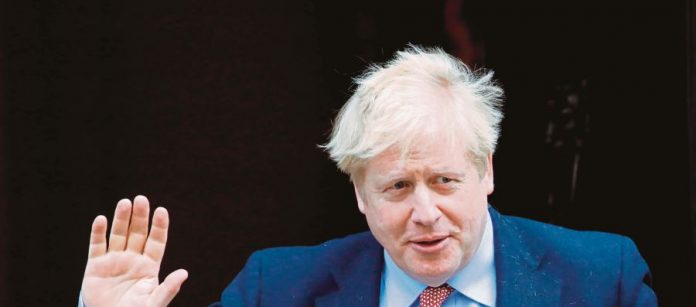London: Embattled British Prime Minister Boris Johnson, under pressure to resign over parties in Downing Street during lockdown, on Tuesday reshuffled his Cabinet and appointed Jacob Rees-Mogg as the minister for Brexit Opportunities and Government Efficiency.
Rees-Mogg, 52, currently leader of the House of Commons, will be based in the Cabinet Office.
Mark Spencer, the current Chief Whip, will replace Rees Mogg as the Leader of Commons.
Rees-Mogg, a prominent Leave campaigner during the 2016 EU referendum, will be a full member of the Cabinet, having previously only attended it. Spencer, who was previously chief whip, will continue to attend.
Chris Heaton-Harris has become the new Chief Whip, in charge of disciplining Conservative MPs.
Stuart Andrew, former Deputy Chief Whip, will be the minister for housing.
Andrew, the MP for Pudsey since 2010, previously held the position of Treasurer of HM Household and was a Deputy Chief Whip in the House of Commons.
The shake-up of the ministerial team follows the appointment of Stephen Barclay as the Prime Minister’s chief of staff.
It also comes as Johnson, 57, seeks to relaunch his administration following the ‘Partygate’ row. He is facing intense pressure to step down from the Opposition and Conservative MPs.
The Prime Minister has already changed many of his advisers and other staff of 10 Downing Street, as he attempts to ward off calls from the Opposition and some of his own MPs, to resign.
At the sub-cabinet level, Stuart Andrew has moved from being deputy chief whip to housing minister.
In her report on gatherings that took place in 10 Downing Street during lockdowns, published last week, senior civil servant Sue Gray criticised “failures of leadership and judgement”.
In response, Johnson has promised a “change” in culture and to consult Conservative MPs more on setting policy.
Meanwhile, Johnson’s office said that the prime minister has no intention of apologising after falsely claiming that Labour leader Sir Keir Starmer had failed to prosecute serial sex offender Jimmy Savile when he was director of public prosecutions.
The reshuffle follows several backbench Tory MPs criticising his leadership.
If 54 MPs write letters to Sir Graham Brady, chairman of the Conservative Party’s 1922 Committee, this will prompt a vote of no-confidence in the prime minister.
If he lost this, there would be a full leadership contest, in which Johnson could not run.
At the last Cabinet reshuffle in September last year, Nadine Dorries became culture secretary and Liz Truss became foreign secretary, while Dominic Raab was moved from the Foreign Office to become the deputy prime minister.
Last week, Prime Minister Johnson’s five aides, including longstanding policy chief Munira Mirza, chief of staff Dan Rosenfield, principal private secretary Martin Reynolds and communications director Jack Doyle, resigned from their posts within hours of each other.
They stepped down after a damning investigation revealed that multiple parties took place at Downing Street while the rest of the United Kingdom was living under strict Covid-19 lockdown rules.
Officers from the Met Police are investigating a total of 12 Downing Street parties.
It is believed that as many as six of those could have been attended by the Prime Minister.


